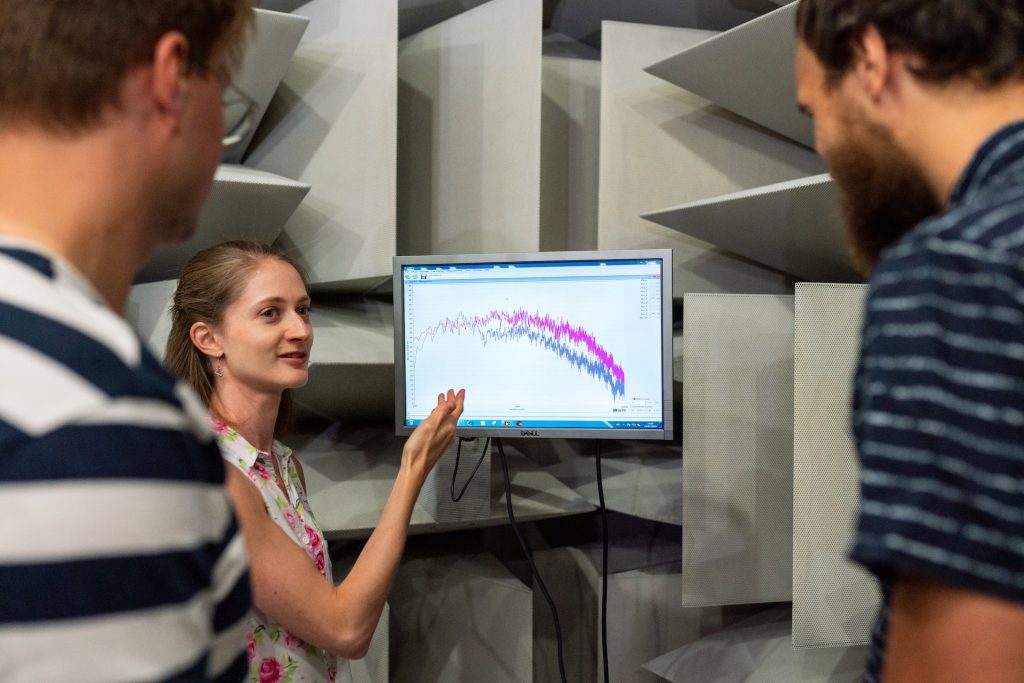The world of recruiting is undergoing a transformative change, with artificial intelligence (AI) playing a pivotal role. This evolution is particularly significant in hiring for customer-facing roles, where the quality of interaction between employees and customers can make or break a business. AI interviews are not just a futuristic concept but are rapidly becoming an integral part of the recruitment process. This blog explores the current landscape, benefits, challenges, and future implications of AI in recruiting for customer-facing positions.
The Current Landscape of AI in Recruiting
Artificial intelligence has already begun to streamline various aspects of the hiring process. From screening resumes to scheduling interviews, AI tools are being employed to increase efficiency and reduce biases. For customer-facing roles, AI can assess candidates’ communication skills, emotional intelligence, and cultural fit more objectively than traditional methods.
Screening and Pre-Interview Assessments: AI-driven platforms can analyze thousands of resumes in a fraction of the time it would take a human recruiter. They use natural language processing (NLP) to identify key skills and experiences that match the job description. Additionally, AI can administer and evaluate pre-interview assessments that test for specific competencies like problem-solving, empathy, and adaptability, which are crucial for customer-facing roles.
Video Interviews: AI-powered video interview platforms are becoming increasingly popular. These platforms use machine learning algorithms to analyze candidates’ facial expressions, voice tone, and word choice. This analysis helps recruiters understand how candidates might perform in real-world customer interactions. For instance, a calm and composed demeanor might be preferred for handling difficult customers, while an energetic and enthusiastic approach could be ideal for sales roles.
Benefits of AI in Recruiting for Customer-Facing Roles
Efficiency and Speed: One of the most significant advantages of AI in recruiting is the speed at which it can process applications. Traditional recruiting methods can be time-consuming, often leading to delays in filling positions. AI can significantly cut down this time, ensuring that businesses do not lose potential talent due to lengthy hiring processes.
Objective Evaluation: Human biases, conscious or unconscious, can affect hiring decisions. AI can help mitigate these biases by providing a more objective assessment of candidates. This is particularly important for customer-facing roles where diversity can enhance customer experiences and drive innovation.
Consistency: AI ensures that every candidate is evaluated against the same criteria, leading to a more consistent hiring process. This consistency is crucial for maintaining a high standard of customer service across all employees.
Data-Driven Decisions: AI can gather and analyze data from various sources, providing insights that might not be immediately apparent to human recruiters. For example, it can identify patterns in successful hires and use this information to refine future hiring processes.
Despite its many benefits, the use of AI in recruiting is not without challenges. Understanding and addressing these challenges is essential for leveraging AI effectively.
AI technologies are constantly evolving, but they are not infallible. Technical glitches or misinterpretations can lead to incorrect assessments. It is essential to have human oversight to validate AI-driven decisions.
The Future of AI in Recruiting for Customer-Facing Roles
The future of recruiting, particularly for customer-facing roles, is likely to be a blend of AI and human input. Here are some potential developments and trends:
Enhanced AI Tools: As AI technology advances, we can expect more sophisticated tools capable of assessing candidates’ soft skills and cultural fit more accurately. These tools might incorporate advanced NLP and sentiment analysis to evaluate candidates’ empathy, resilience, and other critical traits for customer-facing roles.
AI and Human Collaboration: The future will likely see a collaborative approach where AI handles the initial stages of the hiring process, such as screening and preliminary assessments, while human recruiters focus on the final selection. This synergy can combine the efficiency of AI with the nuanced judgment of human recruiters.
Continuous Improvement: Companies will need to continuously monitor and improve their AI algorithms to ensure they remain fair and effective. This might involve regular audits, feedback loops, and updates to the data sets used for training AI models.
Candidate Experience: The candidate experience will also evolve with AI. Automated scheduling, quick feedback, and personalized communication can make the hiring process more pleasant and engaging for candidates. However, it is crucial to maintain a human touch to ensure candidates feel valued and respected.
Ethical AI Practices: As the use of AI in recruiting grows, there will be increased scrutiny on ethical practices. Companies will need to be transparent about how they use AI and ensure they are not inadvertently discriminating against certain groups. This might involve working with third-party auditors or adopting industry standards for ethical AI use.
Conclusion
AI interviews and the broader use of AI in recruiting for customer-facing roles represent a significant step forward in hiring practices. By enhancing efficiency, reducing biases, and providing data-driven insights, AI can help companies build stronger, more effective teams. However, it is essential to recognize and address the challenges associated with AI to ensure it is used responsibly and ethically. The future of recruiting will likely be a harmonious blend of AI and human expertise, leveraging the strengths of both to create a more efficient, fair, and effective hiring process.
Interviewer.AI is a technology platform purposely built to support Recruiters and HR teams in finding top talent for their companies. We also work with universities to help them with admissions and coaching, helping them use technology to solve for talent and training. Our mission is to make hiring equitable, explainable, and efficient. to screen in advance and shortlist the candidates that meet the criteria set.
Schedule a demo today to learn more about how AI interviews can help your hiring.
Gabrielle Martinsson is a Content Writer at Interviewer.AI. She’s a tech geek and loves optimizing business processes with the aid of tech tools. She also loves travelling and listening to music in her leisure.







